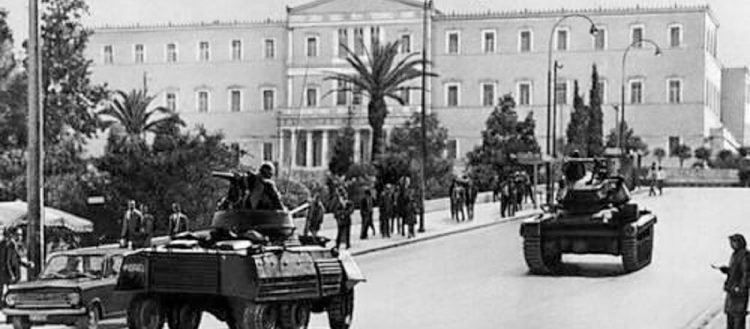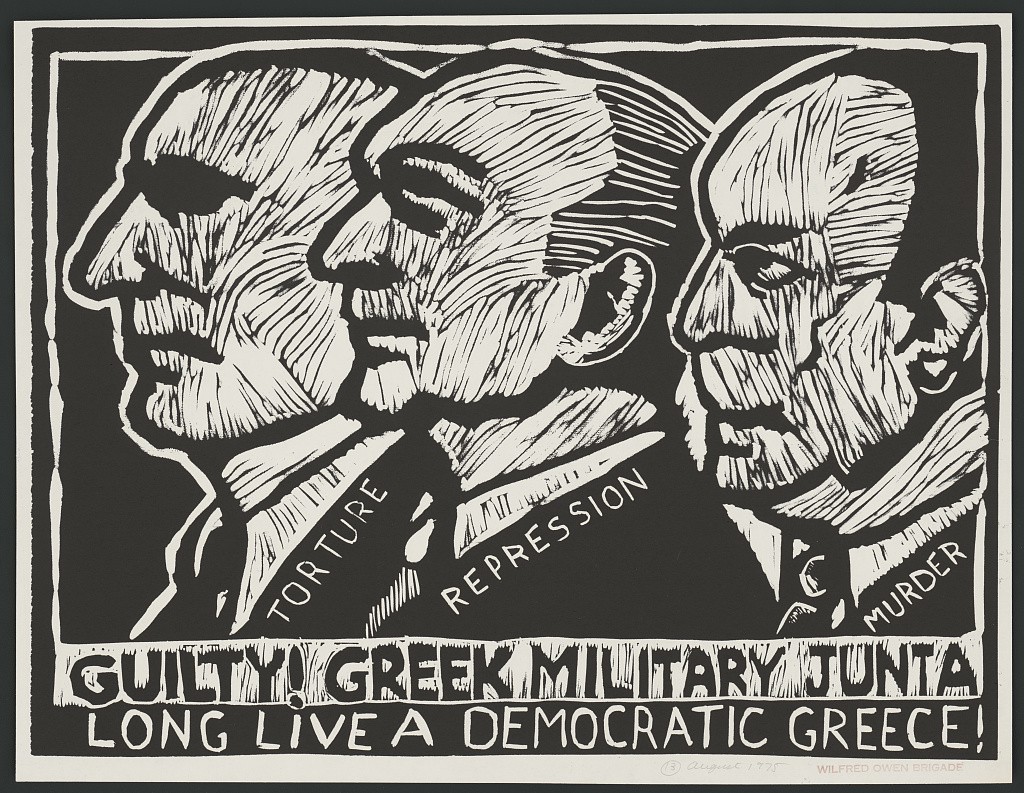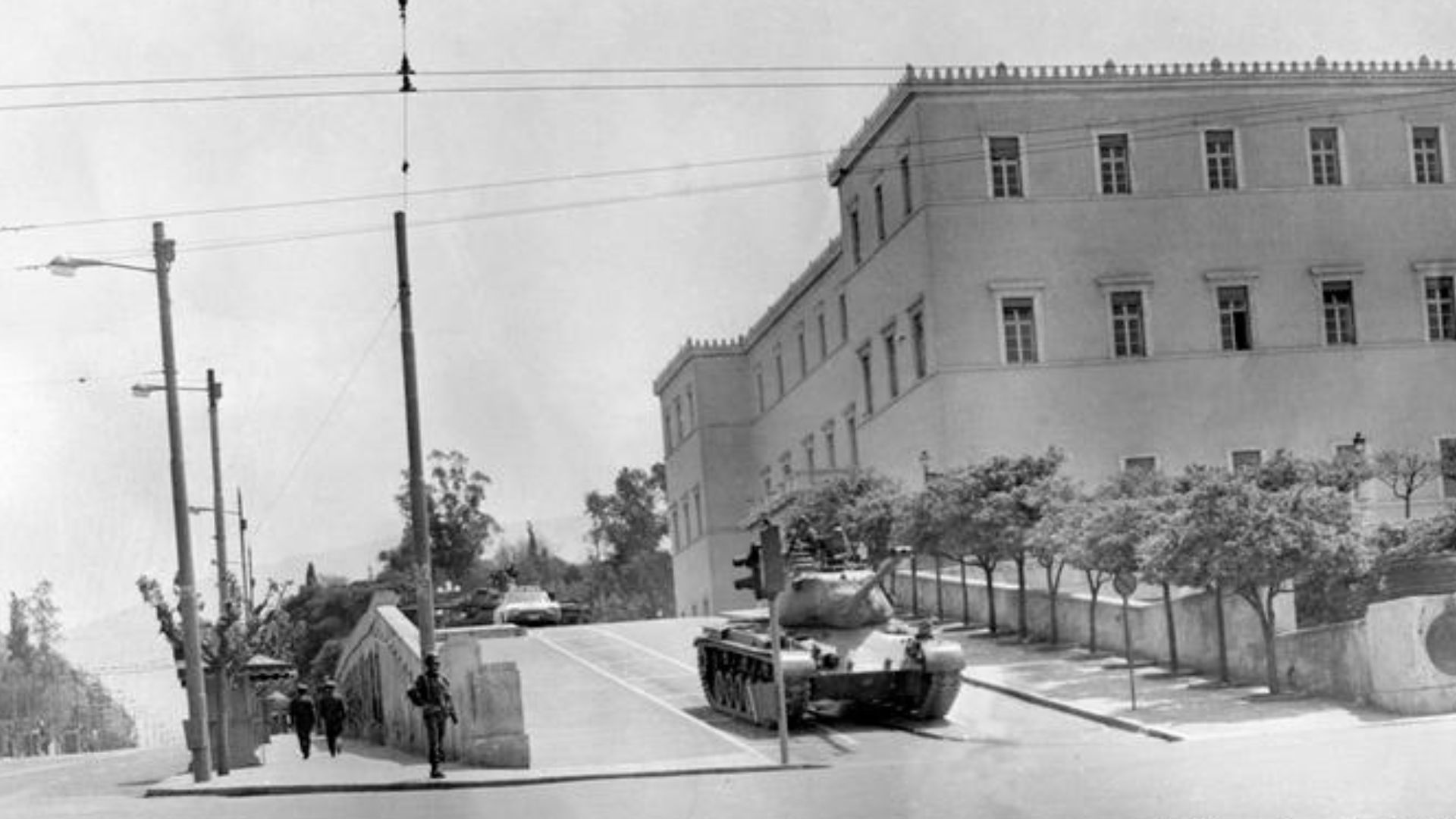By Chrisos Mavromoustakos
It was this day in 1967, just weeks before the scheduled elections, that a group of army colonels led by brigadier General Stylianos Pattakos and colonels George Papadopoulos and Nikolaos Makarezos seized power in a coup d’etat and changed the course of Greece’s history.
Tanks were set all over the city, and small mobiles of men would arrest anyone suspicious of left-wing activity. All opposition to the junta were in custody as of the next morning including acting Prime Minister at the time Panagiotis Kanellopoulos.
The junta focused on far-right policies, which included the execution, exile and imprisonment of political opposition. This would involve ripping the body and hair, sexual tortures and beating the soles of those detained.

After the junta seized power, they removed eleven articles from the Greek constitution. Article 14, which describes the freedom of thought and press was immediately removed. One of the removals of the articles resulted in the immediate arrest of anyone, without a warrant.
The justification for the coup was that without it, Greece would have a ‘communist takeover’. Therefore, the coup was a plea to save Greece from a disastrous bureaucracy. The junta would use propaganda to get their points across the nation, which were led by former Marxists Georgios Georgalas and Savvas Konstantopoulos.
Although citizens could attend concerts and participate in events they constantly lived in fear. Any wrong word or action could result in imprisonment or the label of being a ‘communist’.

After the Axis control of Greece which ended in 1944, political uprest between the left and right in Greece led to many disputes. In fact, there was a Greek civil war in 1944 between the communists and the far-right movement. The defeat of the communist movement led to a win by the Democratic Army of Greece, which was supported by the Americans and the British.
The collapse of the junta both ideologically and politically were triggered by a series of events.

In November 1973, the student uprising in the National Technical University of Athens (Polytechneio) put an end to Papadopoulos’ efforts. Brigadier Dimitrios Ioannidis (center) used the Polytechneio revolt as a pretext to restore public order and organized a coup d’état overthrowing Papadopoulos and his government on November 25, 1973.
Ioannidis lasted only a few months, though. His arrogance led him to organize a coup in Cyprus, following his nationalist dream to unite the island with Greece. On July 20th 1974, Turkey invaded Cyprus. The dictator was forced to give up power three days later and on July 24, self-exiled Constantine Karamanlis returned to Greece.
His new party, New Democracy, won the November 1974 general election, and he remained prime minister. Parliamentary democracy was thus restored, and the Greek legislative elections of 1974 were the first free elections held in a decade.

